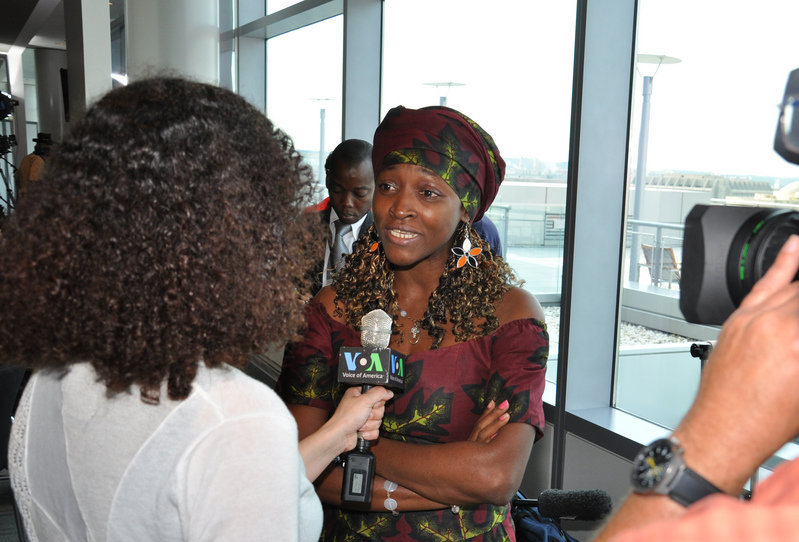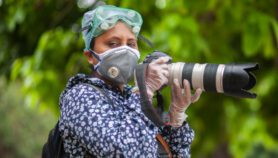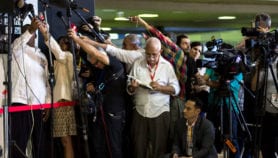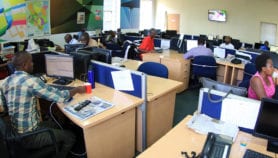Send to a friend
The details you provide on this page will not be used to send unsolicited email, and will not be sold to a 3rd party. See privacy policy.
Government control of the media in Zambia makes it impossible for journalists to report accurately on health issues in the country, and to reach those populations who carry the greatest burden of prevalent diseases, such as malaria, according to local journalists.
Eighty per cent of Zambia's population live in rural areas, yet the government has little interest in encouraging journalists to report on the issues they face, according to some of the country's leading journalists.
Edem Djokotoe, a Ghanaian journalist who lives and works in Zambia's capital, Lusaka, has spent much of his career travelling against the tide to rural areas across the country. He is in the minority, however.
"Not only is there no budget, there is no editorial plan to sustain coverage [of rural issues] on a frequent basis," he says. "Editors will tell you that rural news doesn't sell. The result of all this is that you have an urban population of legislators and policymakers who really have no clue what is going on in this country."
Through state ownership of two daily papers, as well as the public broadcaster, the Zambian government has a strong hold over much of the national press, and deems rural health issues to be inconvenient truths and irrelevant to most policymakers, who are based in Lusaka, says Djokotoe.
Rural challenges
Last December, Djokotoe spent two weeks in rural Western Zambia and took a group of reporters to a local village.
"We found a rural health centre that is manned by an environmental health technician," he says. "The woman who delivers babies is a cleaner — she has no training at all to deliver babies. Her helper is a male cleaner. And the three of them run this rural health centre."
When he wrote about this situation in his newspaper column, "it caused quite a stink," Djokotoe adds. Only then did the Ministry of Health address the problem.
This exemplifies the knock-on effect of a lack of coverage of rural health issues, Djokotoe says. "This is just one village in a country with thousands of villages."
It is often rural populations that suffer the biggest burden of disease, in particular the country's biggest killer, malaria, while Lusaka province has the lowest rates.
“One of the biggest challenges we have, especially with health reporting, is that not many journalists stay because you can't get decent jobs.”
Zarina Geloo
But because of the great disparity between the lifestyle and facilities available to the wealthy citizens of Lusaka, where government officials and most media outlets are based, journalists there will simply not believe the situation outside of the capital.
"They think you are making it up," says Djokotoe. And because of that disconnect, "they don't feel the need to interrogate policies".
Djokotoe also believes many Zambian journalists write to please politicians: "they play it safe so much, they see politicians as their audience."
Poor investment
Health reporting also suffers from a lack of investment in jobs, says Zarina Geloo, a veteran journalist in Zambia, who has researched media coverage of HIV/AIDS and conducted evaluations on the impact of this coverage.
Recently, Geloo completed a two-year project to get more than 20 media outlets in Zambia to develop HIV/AIDS work place policies, and has also organised workshops for young journalists on how to cover health issues.
"One of the biggest challenges we have, especially with health reporting, is that not many journalists stay because you can't get decent jobs," she says. "You are not a precious commodity, so you find there is a high turnover of journalists in the sector and the quality you are getting is getting lower and lower. People are going into journalism to get into the private sector, to get PR jobs, to go into the UN.
People stay in just until they can get something better, and that doesn't work for the profession."
Worryingly, the government now seems to be extending its control of the media to online content, and many journalists and bloggers are concerned over what they say is use of censorship and harassment to try to ensure the online press tows the party line.
Nancy Handabile, a blogger, says that "media bodies are scared of the government laws which date back to pre-colonial times".
Earlier this month, three journalists were arrested in suspected connection with the critical blog Zambian Watchdog, which is believed to be run from outside of the country. Access to the site, along with access to a second independent site, Zambia Reports, has been blocked within the country.
Catherine de Lange is in Zambia covering global health issues as an International Reporting Project new media fellow.














